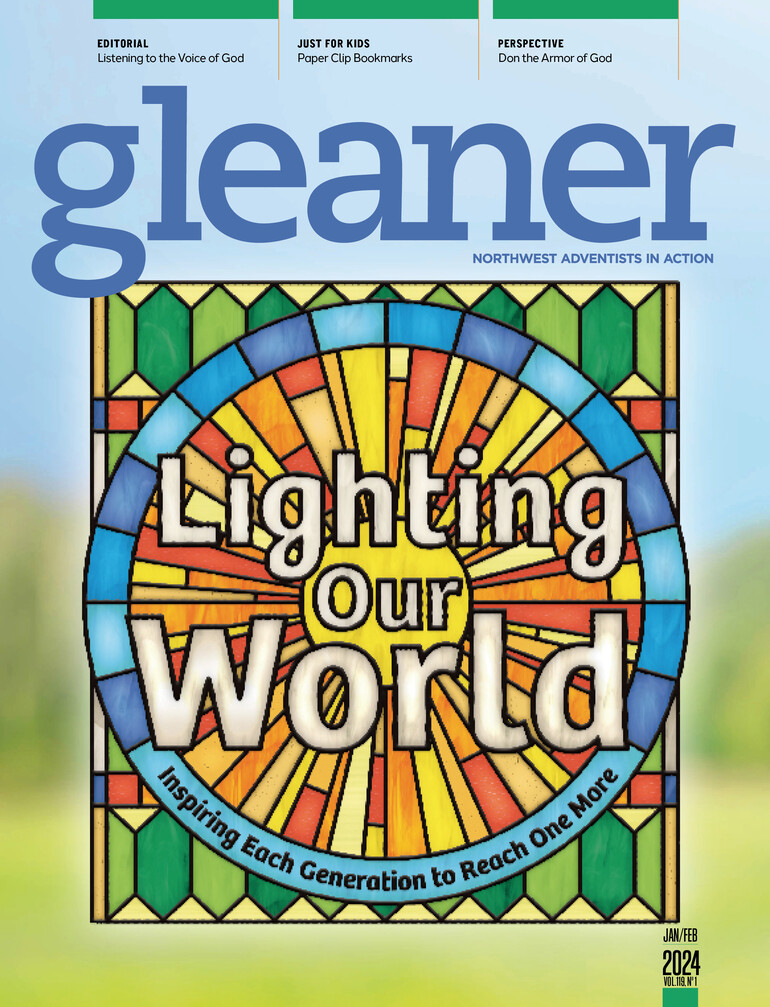When thinking about North Pacific Union’s current theme, “Reach One More,” it’s important to understand the audience we are seeking to reach — and this includes understanding generational differences.
Right here in the Pacific Northwest, we have a local expert in intergenerational ministry. Jason Canfield, from Puyallup, Washington, is the first Adventist pastor to complete his intergenerational doctoral studies through Andrews University. He shares here the vital concept of intergenerational ministry.
Why is it important for church leaders and members to understand generations in our mission to reach one more?
Canfield: In 1 Corinthians, Paul talks about the body of Christ. If you look at the body parts in light of generations, what happens to the body when you only have one arm and try to make everybody an arm? We are decapitating and mutilating the body of Christ when we kick out the generations. So, we have to figure out how to bring generations together.
Each generation responds to things within their context. In his book, Generational IQ, Haydn Shaw writes, “To fulfill God’s purposes in our congregations, we will need to figure out how to speak the languages of different generations. The real God is amazing, so we need to be able to explain Him to the next generation.”
What are some examples of generational differences within the church?
Canfield: Consider John 3:16, one of the most well-known Bible verses. The Silent Generation reads this as “Jesus is the only Son of God.” Baby Boomers view this as, “Was Jesus a liar, lunatic or Lord? I need to know the options and analyze them myself.”
Generation X says, “I need more proof that the historical Jesus is the biblical Jesus.” Millennials say, “Would you consider that Jesus might be God’s only son?” Generation Z then says, “Jesus is the friend you’ve never had and will never lose.”
Here’s another application: offering appeals. Someone from the Silent Generation is likely to say, “It’s time to give God what He is due.” Baby Boomers will say, “Giving is a part of worship, isn’t it?” Gen Xers will share statistics and testimonies on the benefits of giving.
Millennials will focus on generosity as a value of Jesus that impacted everything He did and said. Gen Zers will share a message about how “Jesus values you and me more than anything we could give to Him.”
One of the reasons we have conflict between generations in the church is that we don’t understand why other members want what they want and do what they do. There is no clear understanding and no black-and-white answers. It’s about preferences. This is one reason why we can’t agree upon music, for example.
What is the core idea behind intergenerational ministry and its approach to fostering connections between different age groups in the church community?
Canfield: Intergenerational ministry addresses the interplay and intercommunication between generations, versus just having multiple generations present.
Here's the thing about intergenerational ministry: It’s not just about the older generations expressing interest in the younger generations. It’s the younger generations also expressing interest in older generations, too. It goes in all directions.
Most people are scared that you are going to prioritize one generation over the other. Many people, when they hear “intergenerational,” perceive that there is a high prioritization on young people and that it means old people should be quiet and go away. It was never supposed to be about prioritizing one over another. It’s supposed to be about the benefits of being interconnected.
What is the scriptural significance of intergenerational ministry?
Canfield: One of our big challenges is how to transmit faith without requiring it to look identical and how to allow each generation to contextualize the message.
In the Old Testament, you will find the first Elijah with a message for his generation. John the Baptist is referred to in the New Testament as the second Elijah who prepared the way for Jesus.
The Old Testament ends with a message about turning the hearts of fathers and children. This is generational reconciliation that Ellen White and others wrote about as preparing the way for the Second Coming of Jesus.
The generational reconciliation didn’t happen in the times of Jesus. Consider how the disciples shooed away the children.
The Elijah message comes together at the end of time and fits into something specific the remnant is supposed to do. If we don’t take action, conflicts and divisions are going to further disease the body of Christ.
What are some best practices for churches that want to be more intentional about engaging generations?
Canfield: It’s important to have fun together. Church socials are a good place to start because it’s not confrontational or intimidating. Intergenerational worship committees help evaluate how to present worship services that speak to all generations. Small groups are helpful.
Some churches will host progressive dinners, guess-who-is-coming-to-dinner or opportunities to “share the table.” This all helps people get to know those they normally wouldn’t and starts spiritual conversations.
Speed conversations are one of my favorite generational activities. With this activity, you give everyone a generational name tag and a clipboard with one question (at a time). You place people within two circles that rotate every minute. The participants ask each other a question like, “What do you think is more important in church: reverence or engagement?”
As the answers come in, the participants will quickly realize how we all think differently and notice trends within the local context.
What is your prayer for the church?
Canfield: My prayer is that we can truly be a united church that creates an intergenerational culture attractive to all generations outside the church.
I spent six years as a missionary in Asia. If you didn’t study the people, you didn’t know their customs, culture and language. The same applies to the church. As practitioners of faith, we have to get to know the languages, cultures and customs of the generations in our church.
In the last year in my church here in Puyallup, Washington, we’ve had 30 baptisms of multiple ages and another 15 people preparing for baptism. When you address the needs of all generations in the church, people will keep coming back, asking more questions and growing in faith.










